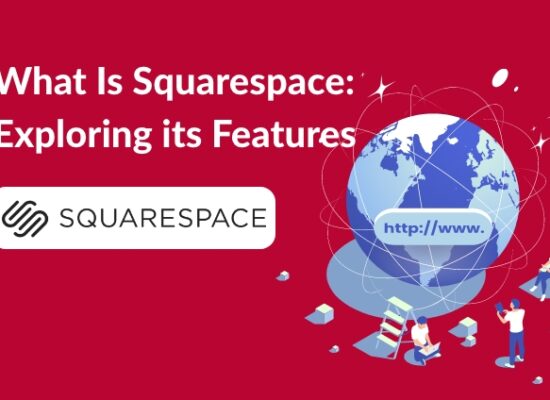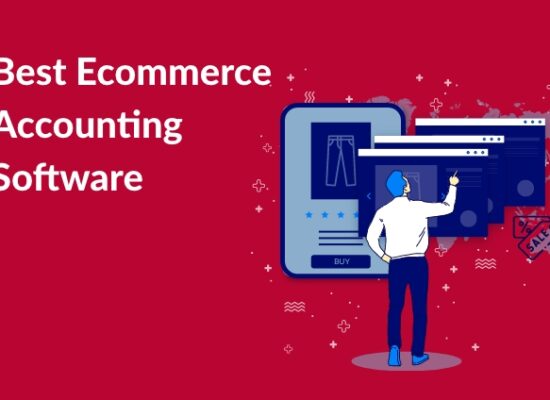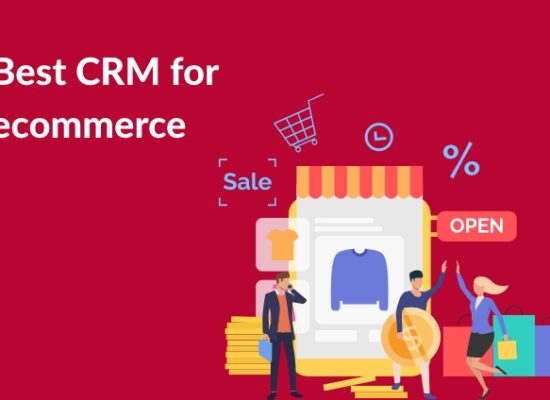
Have you considered launching your small business online?
We’re going to explore the world of e-commerce platforms today that make it easy to sell your amazing things. For both beginners and experienced entrepreneurs, we have the inside scoop on the top platforms to launch your ecommerce business.
In today’s digital world, an ecommerce platform is essential to build an online store. It provides a means of expansion and sustainability with ease. Companies can compete successfully with larger rivals, access a wider audience and overcome challenges by creating an online presence.
Choosing the right platform with so many good options available is a bit confusing and time consuming. It is crucial for businesses, especially small scale businesses which are looking to succeed in the digital marketplace. There are many accessible solutions, such as BigCommerce, WooCommerce, Shopify etc. Each offers special features and advantages catered to different demands.
To help you get through, we have listed down 9 best ecommerce platforms for small businesses.
Read More : How to start an Ecommerce Business?
Best Platform for Ecommerce Website
Selecting the appropriate platform for your ecommerce website is an important choice that will have a big effect on your online business. When launching a startup, finding the best ecommerce platform for SEO is essential to guarantee visibility online.
The best platform will rely on your unique requirements, financial elements, and need for future scalability. Your ecommerce endeavor will succeed in this competitive online market if you make an informed pick by considering aspects like customization options, ease of use, and scalability. Opting for custom ecommerce development ensures a tailored solution that aligns precisely with your business needs, offering a unique online shopping experience.
Shopify

Shopify is renowned as the best website builder for ecommerce, offering a robust platform that enables companies to easily launch and run their online storefronts. Shopify’s user-friendly features and customizable templates make it easier to create visually appealing and functional fashion ecommerce websites. The platform’s vast app ecosystem improves the entire purchasing experience by letting companies customize their websites to meet particular requirements.
Pros
- Shopify is a user-friendly automotive platform. It is accessible to users with varied degrees of technical ability.
- Multiple payment gateways are supported by Shopify. It makes transactions easier for both customers and retailers.
- Shopify helps businesses efficiently promote their items with built-in marketing capabilities like social media integration, discount codes, and SEO optimization.
- You can integrate a variety of third-party apps with Shopify to expand and improve the functionality of your business.
Cons
- Additional fees may apply to users who are not utilizing Shopify Payments and are selling overseas.
- Users on basic plans have limited access to certain advanced capabilities, such as real-time carrier shipment.
- Shopify may have limitations in terms of designs and functionality.
- There isn’t as much flexibility or customization available for SEO components.
Read More: What is Shopify & How It Benefits Your Online Business
Shopify Pricing :
| Plans | Pricing |
| Lite | $9 / Month |
| Basic | $29 / Month |
| Standard | $79 / Month |
| Advanced | $299 / Month |
Magento

Magento is a powerful e-commerce platform that is well-known for its ability to manage large amounts of data in the online retail space. Known for being scalable, Magento offers a strong basis for big data e-commerce operations, making it a preferred choice for businesses dealing with extensive datasets and complex product catalogues. Magento’s ecommerce development framework is designed to accommodate the challenges and opportunities presented by big data, allowing businesses to efficiently manage and analyze vast amounts of information.
Pros
- Magento is open-source. It can be customised to a great extent. It allows businesses to create online stores that are tailored to their individual needs.
- It provides a strong toolkit for online retail such as product administration, inventory tracking and consumer segmentation.
- Magento is a highly scalable platform that expands alongside businesses.
- Magento focuses on a secure environment for online transactions. It shields clients and businesses from potential risks with regular security updates.
Cons
- Magento websites have slower load times if they are not properly optimised. It can negatively affect user experience and even search engine rankings.
- Reaching Magento’s maximum potential frequently requires experienced developers, and hiring such people will be expensive and difficult.
- Compared to the Enterprise Edition, Magento’s Community Edition (open-source) receives less official support. It is a disadvantage for companies who mostly rely on community help.
Magneto Pricing :
| Plan | Pricing |
| Magento Commerce | Starts at $1,999 / month. |
| Magento Commerce Cloud | starts at $40,000 / year. |
Wix

Wix has emerged as a prominent e-commerce platform, recognized for offering one of the best e-commerce website design experiences. Wix’s user-friendly drag-and-drop interface and abundance of eye-catching templates make it simple for users to construct beautiful online storefronts. Because of the platform’s focus on user-friendly design tools, businesses can create a distinctive and expert online presence without needing to know coding.
Pros
- Its user-friendly drag-and-drop interface makes it simple for those without technical experience.
- The Wix App Market offers a range of apps such as analytics, marketing tools, and third-party service connections to improve the operation of your online store.
- Wix offers customers on smartphones and tablets a smooth and responsive experience by automatically optimising websites for mobile devices.
- With a variety of payment choices including free ones, Wix is affordable for startups and small enterprises.
Cons
- Certain plans offered by Wix include transaction fees. It can affect the total cost of selling products online.
- Wix is better suited for simpler online stores because it does not have all the sophisticated e-commerce features.
- The platform’s source code is not accessible to users. It restricts the degree of customisation available to individuals with complex coding requirements.
Wix Pricing :
| Plans | Pricing |
| Combo | $16 / Month |
| Unlimited | $22 / Month |
| Business Basic | $27 / Month |
| Business Unlimited | $32 / Month |
| Enterprise | $500-plus / Month |
Read More : Top Ecommerce Tools Every Entrepreneur Should Use
BigCommerce

BigCommerce is an e-commerce platform that makes it easy for users to create and maintain their online stores. It offers editable templates so customers can make websites that appear professional and sell goods. BigCommerce is an excellent option for those looking for a feature-rich yet user-friendly e-commerce platform since it allows users to manage multiple parts of their business effectively and create a strong online presence.
Pros
- A wide range of features are available with BigCommerce, including integrated SEO tools, responsive themes, and several payment channels.
- In order to accommodate the growing number of customers who purchase on mobile devices, the platform makes sure that your online store is mobile-friendly.
- It scales to accommodate more product listings and traffic as your business expands.
- BigCommerce places a high priority on security by offering tools like PCI compliance, HTTPS and frequent security updates.
Cons
- BigCommerce costs more than some other platforms particularly for smaller companies with tighter budgets.
- BigCommerce can be customised but it might not be as adaptable as certain open-source platforms.
- For new users, the platform may be complicated. It might take some time to get acquainted with all of its features.
- Although there are many apps accessible, some can include extra fees. It raises your overall spending particularly if you make a lot of sales.
Bigcommerce Pricing :
| Plan | Pricing |
| Standard | $39 / Month |
| Plus | $105 / Month |
| Pro | $399 / Month |
Weebly

Weebly is an easy-to-use e-commerce platform that facilitates the creation of personal websites for online goods sales. It is well-known for its drag-and-drop website builder, which enables users to easily create online storefronts that are both aesthetically pleasing and functional without the need for coding knowledge.
Pros
- Due to Weebly’s well-known user-friendly design, even those without technical experience can easily set up and maintain their online stores.
- Users can quickly establish and configure their online stores with the help of the drag-and-drop website builder.
- Weebly is an excellent choice for small enterprises or those with tight budgets.It is typically less expensive than some other e-commerce platforms.
- Users no longer have to look for and manage a different hosting provider because Weebly offers website hosting.
Cons
- For increasing businesses with increased needs, Weebly might not be as scalable as some other e-commerce platforms.
- Weebly provides SEO capabilities but they are less sophisticated than those of competing e-commerce platforms.
- Weebly might have less capabilities than some other platforms thus customers might have to rely on third-party apps to get extra functionality.
- Certain plans offered by Weebly include transaction fees which may have an effect on overall prices.
Weebly Pricing :
| Plan | Pricing |
| Personal | $13 / Month |
| Professional | $16 / Month |
| Performance | $29 / Month |
WooCommerce

WooCommerce, a robust e-commerce solution seamlessly integrated with WordPress, stands out as a versatile e-commerce CMS (Content Management System). With WooCommerce, customers can easily convert their websites into fully working online stores by utilising the power of WordPress. It offers an easy-to-use interface for handling orders, items, and customer data as an e-commerce content management system. WooCommerce is an efficient and flexible solution for companies of all sizes wishing to create and maintain an online presence.
Pros
- WooCommerce is very flexible. Users may utilise themes, plugins, and extensions to customise their online businesses to meet unique requirements.
- WooCommerce is an affordable platform for small enterprises or those on a tight budget because it is an open-source platform.
- Users can add a variety of features and functionalities to their online stores, improving overall capabilities, thanks to the abundance of plugins and extensions available.
- Allows users to select the payment options for their clients from a wide range of supported payment gateways.
Cons
- Although WooCommerce is adaptable, newcomers may find its wide range of customization possibilities daunting.
- Users are in charge of maintaining their installations up to date, which may call for technical expertise.
- Users need to pay for premium plugins or extensions in order to access advanced capabilities.
- Performance on websites can be affected by extensive customisation and the usage of multiple plugins, especially if they are not adequately optimised.
WooCommerce Pricing:
The free plug-in includes additional costs for domain names, premium themes, and essential elements like SSL certificates and web hosting, which are already integrated.
Read More : 8 Key Software Tools for Ecommerce Operations
Square Online

With the help of the Square Online e-commerce platform, customers can easily develop and manage their online stores. Even users with no technical expertise can create a professional website with the platform’s configurable templates. Square Online is meant for people who want to start selling products online without having to deal with the hassles of website creation because it provides features like order management, inventory tracking, and secure payment processing.
Pros
- Square Online is appropriate for small enterprises on a short budget because it provides a free plan with basic functionality.
- Square Online has smooth integration that offers a simplified payment experience.
- It is usable by users with different levels of technical experience due to its simple setup.
- Square Online does not impose transaction fees on its premium plans thus saving money.
Cons
- In comparison to other platforms, some users might find the design modification possibilities to be a little limited.
- Larger companies or those with more complicated demands could find it to be limited.
- Comparing Square Online’s SEO skills to those of other ecommerce platforms, some customers can feel that they are less.
- Further functionalities may be limited by the app ecosystem’s relative lack of size compared to some other platforms.
Square Online Pricing:
| Plan | Pricing |
| Free | $20 / Month |
| Plus | $29 / Month |
| Premium | $79 / Month |
Volusion
An e-commerce platform called Volusion makes it simple for users to set up and maintain their online storefronts. Because it offers a simple interface for creating and modifying websites, even individuals without a lot of technical experience can use it. All things considered, Volusion is an easy-to-use option for people and small enterprises wishing to create an online identity and conduct online sales.
Pros
- Volusion streamlines the setup process by offering an all-in-one platform with e-commerce, security, and hosting options.
- It provides themes that are adaptable and responsive. It guarantees a unified and user-friendly experience across platforms.
- It emphasises security with features like PCI compliance and SSL certification.
- It eliminates the need for third-party apps with a number of built-in functions like order processing, marketing tools and inventory management.
Cons
- Transaction fees may be assessed by Volusion based on the plan which affects total expenses.
- The interface is less user-friendly to some users. It makes learning more difficult especially for new users.
- Advanced functionalities are limited by the app ecosystem’s relative lack of size compared to some other platforms.
- Although there are themes available, users find that there are less choices for customising the design than on other platforms.
Volusion Pricing:
Ranges from $29 to $299 per month.
Squarespace

Squarespace makes it simple for users to design and maintain their own e-commerce websites. Because of its user-friendly interface, businesses construct their online stores without requiring highly technical knowledge. Squarespace makes it easy to construct an e-commerce site that is both aesthetically pleasing and useful by offering a variety of layouts.
Pros
- Squarespace is renowned for its aesthetically pleasing and contemporary design templates. It enables customers to construct websites that appear professional.
- The user-friendly interface and drag-and-drop constructor of the platform enable individuals with diverse technical backgrounds to utilise it.
- Squarespace streamlines the setup process by providing hosting, domain registration, and e-commerce services all in one package.
- Squarespace templates are mobile-responsive so users will always have the same experience on any device.
Cons
- In comparison to platforms that provide greater flexibility, advanced users might find Squarespace’s customization choices to be fairly limiting.
- The number of third-party integrations in the platform’s app marketplace are lower than on certain other e-commerce platforms.
- The e-commerce tools provided by Squarespace are not as comprehensive or sophisticated as those provided by specialised e-commerce platforms.
- Squarespace has certain restrictions on the options and configurations available to businesses who offer product variations.
SquareSpace Pricing:
| Plan | Pricing |
| Personal | $23 / Month |
| Business | $33 / Month |
| Basic Commerce | $36 / Month |
| Advanced Commerce | $65 / Month |
Choose the best ecommerce platform wisely
Small businesses looking to succeed online must select the right e-commerce platform. Every platform, including WooCommerce and Shopify, has unique benefits and things to keep in mind. The secret is to match the platform’s features, cost, and scalability to your company’s requirements.
For best results, small businesses need to consider many criteria such as ease of use, vast customization, and solid customer support. In the highly competitive world of e-commerce, entrepreneurs can create a strong online presence and accelerate growth by making well-informed decisions based on unique requirements.
FAQ’s
What e-commerce site works best for small businesses?
Depending on your particular requirements, Shopify, WooCommerce, and BigCommerce are a few well-liked choices.
Do these platforms offer stores optimized for mobile devices?
Indeed, for a better user experience, Shopify, WooCommerce, and BigCommerce all place a high priority on mobile adaptability.
Are there recurring costs after the first setup?
Absolutely, for a thorough cost analysis take into account elements like hosting fees, domain registration, and possible app charges.
What transaction costs are connected to these platforms?
Transaction costs differ; BigCommerce and WooCommerce don’t charge extra, while Shopify does unless you utilise Shopify Payments.
Are small enterprises able to use free e-commerce platforms?
Yes, there are free versions available for programs like Magento Community Edition and WooCommerce plugin
Is it possible to combine these platforms with third-party apps?
In order to improve functionality, these systems do indeed support a variety of third-party apps and integrations.



